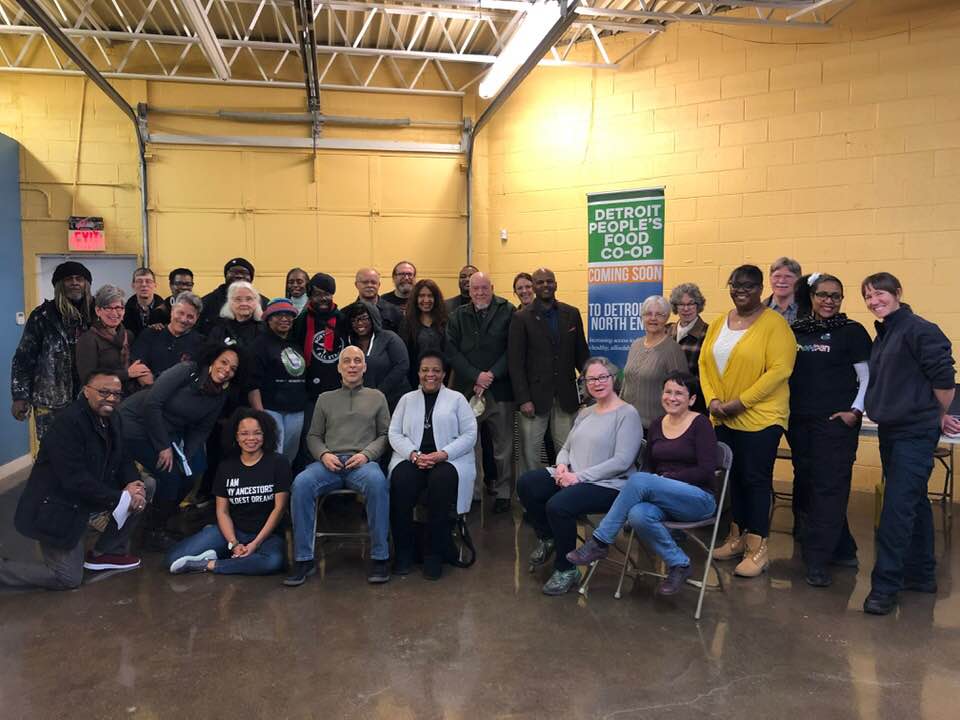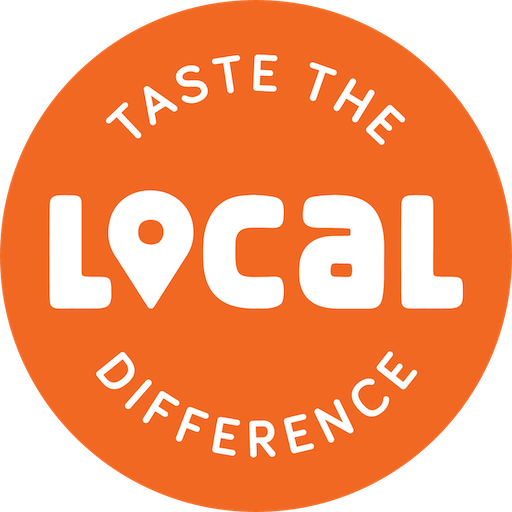“Co-ops are for the people, inspired by the people, built and driven by the people,” says Dr. Akua Woolbright, Board President of the Detroit People’s Food Co-op, a lifelong community health educator and a Program Director at the Whole Cities Foundation.
Across the country, cooperative grocery stores increase food access and agency in communities. These community-driven movements resist our current systems of mass distribution and widespread supermarkets, and bring the focus back to local economies. “The co-op is an answer to some of the concerns people have with lack of food access, care, customer service and healthy products at some other grocery stores,” Woolbright says. “This is pushing back against extractive economics and keeps money in your community to promote a more robust food system.”
Co-op groceries typically run on a member-owner system. Folks can become a lifelong member-owner by paying a one time fee or sometimes in installments. Once the co-op becomes profitable, member-owners get returns on that share, and may also get to vote on the board of directors. Plus, member-owners are invited to share their visions and opinions for the space at monthly meetings and open committee meetings. In Michigan, there are many well-established cooperative stores, as well as growing movements, all of which are listed at the bottom of this page.
The Detroit People’s Food Co-op (DPFC)

After years of gathering members and community support, the Detroit People’s Food Coop is starting construction on a physical space! The DPFC saw interest increase this past summer in the wake of the George Floyd and Breonna Taylor murders, among many others. Woolbright says, “People wanted to find ways to express their voice and express their concerns. Part of that was throwing their energy behind Black owned businesses and organizations.” Additionally, with grocery shortages, people realized the fragility of mainstream food distribution systems and started looking for local resources. These factors led to an increase in membership from about 500 owners at the start of the pandemic, to now over 1,150.
The Detroit Black Community Food Security Network (DBCFSN), the DPFC’s parent organization, is building the Detroit Food Commons in the North End neighborhood of Detroit. The building will house the Food Co-op, office space, incubator kitchens, and community classrooms. They hope to host classes around healthy eating, cooking, herbalism, sustainable food systems, and organics to empower people in the same space they shop.
Pre-COVID, DPFC had a robust membership outreach strategy, by going out to community organizations, speaking at events, and tabling at festivals. Folks even hosted house parties to invite prospective member-owners to dinner and they accepted memberships on the spot. They had “coffee with the co-op” events by partnering with a local coffee shop to set up a table there and take memberships. These efforts doubled their membership from 2018-2019.
Membership fee is $200 per individual ages 21 plus who are MI residents, and it is a one-time fee for a lifetime membership. There is the option to pay that in 10 installments, or some scholarship funds for half off your membership. As Woolbright noted, it’s important to have some buy-in so it is owned and run by the people, and that they are fully integrated into the co-op experience.
Many grocery stores in Detroit and across the country have no accountability to the community they serve. As Woolbright points out, “other groceries are run by people who are not Black, who may have biases about their shoppers, and that shows up in simple customer service. Is there a relationship, or is it simply transactional?” Woolbright shared, “We see a lot of development happening across the city – a new sports center, entertainment complexes, residential high rises, high end stores and gourmet restaurants – it’s no longer contained downtown. The majority of residents, Black folks, are left out of those conversations, profits, and economic advantages, and are being displaced and harmed by it.” While this can leave people feeling hopeless, Woolbright offers,” Sometimes you may feel hopeless to stop something, but you may feel empowered to do something.”
The DPFC has an opportunity to empower people and to provide the opportunity to put their “energy, patronage and dollars behind something positive,” Woolbright says. To create a store that can be another home for shoppers, the DPFC hosted over 30 listening sessions at the beginning of their planning process. They gathered community input to make sure the store culture would reflect what they want: exciting food options, a hot meal, an inviting environment to draw people into the store.
Advice for new cooperative efforts or folks hoping to start a cooperative grocery in the future:
• Community Engagement sessions are a crucial first step (DPFC had 30+)
• Self branding – while the DPFC began as part of the DBCFSN, they created their own brand, phone number, website and had office hours to establish themselves.
• Talk about and highlight store culture!
• Think about the different operations for the store – curbside pickup, online ordering,
How to Support the Detroit People’s Food Co-op!
If you are in the metro-Detroit area, become a lifetime member-owner for a one time fee of $200.
If you do not want to become a member, donate to the Detroit Black Community Food Security Network, the coop’s fiduciary sponsor. This will help more North End residents in Detroit become members at a discounted membership price. These are tax deductible donations.
Grand Rapids Food Co-op

Linda Davis, the Board President of the Grand Rapids Food Co-op, helped start this initiative in 2016. This effort will be owned by the community that is dedicated to expanding food access and supporting the community food web, including local farmers. Davis says, “The goal is not to make as much money as possible, but to make the strongest community possible.” The board wants to source as much local food as possible and combat the extractive tendencies of capitalism. Davis says co-ops can bring back “safety, community and nourishment when we work together as a community, rekindling ancient relationships of people to their food and to each other.”
The GR Food Co-op currently has over 300 member-owners and aims for 1,000 before hosting an owner loan drive to acquire a physical space. However, supporters who buy in now can use their membership at the Kalamazoo People’s Food Co-op in the meantime. Lifetime membership is $250 per household, or you can purchase a $25 Food For All Share if needed.
Join a co-op near you to support your local food system, even if there is no physical location yet! Investment from the community is necessary to get these movements going.
Other Food Co-op movements to join in Michigan:
- North Flint Food Market
- East Lansing Co-op
- Kalamazoo People’s Food Co-op
- Green Tree Cooperative, Mt Pleasant
- Keweenaw Co-op, Hancock
- Marquette Food Co-op
- People’s Food Co-op, Ann Arbor
- Ypsilanti Food Co-op
- Oryana Community Co-op, Traverse City
- Grain Train Co-op, Petoskey and Boyne City
- Northwind Co-op, Ironwood
